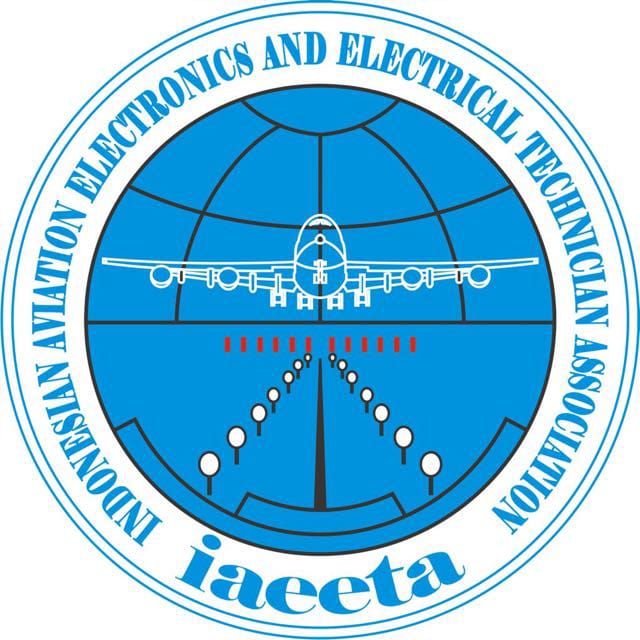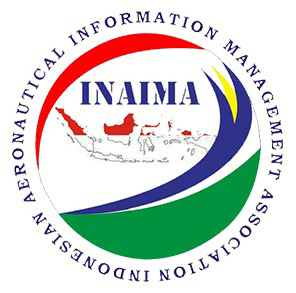Teachers’ Anxiety And Self-Efficacy: The Effect On Their English Skills Mastery
Abstract
Teachers’ anxiety and self-efficacy in four English skills take an important role in succeeding the classroom learning activities. Thus, this study aimed to examine the effect of teachers’ anxiety and self-efficacy on their English skills mastery. The teachers’ English skills mastery was based on their TOEIC Scores. There were 65 teachers at one of the state polytechnics who participated voluntarily in the study. Data were obtained using Foreign Language Anxiety Scale (FLAS) and Foreign Language Self-Efficacy Scale (FLSS). Lecturers’ TOEIC scores were categorized into six levels namely novice, elementary, intermediate, basic working proficiency, advanced working proficiency, and general professional proficiency. The obtained data were analyzed using the descriptive-quantitative technique. The results showed that there was no notable effect of teachers’ anxiety in English on their English skills mastery. Another finding revealed a significant effect of teachers’ self-efficacy in mastering English on their English skills mastery. These results are expected to be a reliable source of rationales that initiating a development program of teachers’ self-efficacy in mastering English could enhance their English skills mastery.
Downloads
References
Abdurahman, N. H., & Rizqi, M. A. (2020). INDONESIAN STUDENTS' STRATEGIES TO COPE WITH FOREIGN LANGUAGE ANXIETY. TEFLON Journal, 31(1), 1-18. doi:http://dx.doi.org/10.15639/teflinjournal.v31I1/1-18
Al-Mahrooqi, R., & Denman, C. J. (2015). EFL Learners’ Anxieties: Tertiary-level Strategies among Omanis. In Bridging the Gap between Education and Employment: English Language Instruction in EFL Contexts (Vol. 198, pp. 215–228). https://doi.org/https://doi.org/10.3726/978-3-0351-0842-2
Ambarwati, R., Harja, Y. D., & Thamrin, S. (2020). The Role of Facilitating Conditions and User Habits: A Case of Indonesian Online Learning Platform. Journal of Asian Finance, Economics, and Business, 7(10), 481–489. https://doi.org/https://doi.org/10.13106/jafeb.2020.vol7.no10.481
Ambarwati, R., Lieharyni, D. C. U., & Multazam, M. T. (2020). Transparency principle of GUG for audit it in higher education. Talent Development and Excellence, 12.
Anandari, C. L. (2015). Indonesian EFL Students’anxiety In Speech Production: Possible Causes And Remedy. Teflon Journal, 26(1), 1–16. https://doi.org/.doi.org/10.15639/teflinjournal.v26i1/1-16
Aydin, S., Harputlu, L., C\celik, S. S., Us\ctuk, O., & Güzel, S. (2017). {AGE}, {GENDER} {AND} {GRADE} {EFFECT} {ON} {FOREIGN} {LANGUAGE} {ANXIETY} {AMONG} {CHILDREN}. {TEFLIN} Journal - A Publication on the Teaching and Learning of English, 28(2), 133. https://doi.org/10.15639/teflinjournal.v28i2/133-154
Aydin, S., Harputlu, L., Çelik, Ş. S., Uştuk, Ö., & Güzel, S. (2017). AGE, GENDER, AND GRADE EFFECT ON FOREIGN LANGUAGE ANXIETY AMONG CHILDREN. TEFLIN Journal, 28(2), 133-154. Retrieved from https://www.proquest.com/scholarly-journals/age-gender-grade-effect-on-foreign-language/docview/1932293432/se-2?accountid=50637
Aydin, S., Harputlu, L., Güzel, S., ſeyda Savran ÿelik, ÿzgehan Uſtuk, & Genç, D. (2016). A Turkish Version of Foreign Language Anxiety Scale: Reliability and Validity. Procedia - Social and Behavioral Sciences, 232, 250–256. https://doi.org/https://doi.org/10.1016/j.sbspro.2016.10.011
Bandura, A. (1977). Self-efficacy: Toward a unifying theory of behavioral change. Psychological Review, 84(2), 191–215. https://doi.org/https://doi.org/10.1037/0033-295X.84.2.191
Braza Ocampo, M. (2017). Perceived Anxiety Of English Learner And Teacher In A Call Environment Classroom. PEOPLE: International Journal of Social Sciences, 3(2), 1209–1226. https://doi.org/https://dx.doi.org/10.20319/pijss.2017.32.12091226
Chan, S. H., Abdullah, A. N., & Yusof, N. B. (2012). Investigating the construct of anxiety about speaking skills among ESL tertiary learners. 3L; Language, Linguistics and Literature, 18(3), 155-166.
Chow, B. W. Y., Chiu, H. T., & Wong, S. W. L. (2018). Anxiety in reading and listening to English as a foreign language in Chinese undergraduate students. Language Teaching Research, 22(6), 719–738. https://doi.org/https://doi.org/10.1177/1362168817702159
Crookall, D. & Oxford, R. L. (1991). Dealing with anxiety: some practical activities for language learner and teacher trainees. In E.K. Horwitz & D.J. Young (Eds.). Language Anxiety: From Theory and Research to Classroom Implications. Englewood Cliffs, NJ: Prentice Hall. 141-50.
Djafri, F., & Wimbarti, S. (2018). Measuring foreign language anxiety among learners of different foreign languages: in relation to motivation and perception of teacher’s behaviors. Asian-Pacific Journal of Second and Foreign Language Education, 3(1). https://doi.org/10.1186/s40862-018-0058-y
Fatmawati, D., & Supra, W. (2018). Measuring foreign language anxiety among learners of different foreign languages: In relation to motivation and perception of teacher’s behaviors. Asian-Pacific Journal of Second and Foreign Language Education, 3(1) doi:http://dx.doi.org/10.1186/s40862-018-0058-y
Goudarz, A., Fariborz, N., & Akram, L. (2020). Exploring the consequences of teachers’ self-efficacy: A case of teachers of english as a foreign language. Asian-Pacific Journal of Second and Foreign Language Education, 5(1) doi:http://dx.doi.org/10.1186/s40862-020-00102-1
Hammodeh Ahmad Al-Khotaba, H., Ahmed Alkhataba, E. H., Abdul-Hamid, S., & Bashir, I. (2019). Foreign Language Speaking Anxiety: A Psycholinguistic Barrier Affecting Speaking Achievement of Saudi EFL Learners. Arab World English Journal, 2(4), 68–74. https://doi.org/http://dx.doi.org/10.2139/ssrn.3512637
Horwitz, E. K., Horwitz, M. B., & Cope, J. (1986). Foreign Language Classroom Anxiety. The Modern Language Journal, 70(2), 125–132. https://doi.org/https://doi.org/10.2307/327317
John Mark G. Lachica, & Lachica, J. M. G. (2019). Lift Yourself Up or Dust Yourself Down: A Phenomenology of the Speaking Anxiety Experienced by University Students. Asian EFL Journal, 21(2), 46–71.
Khamyon, S., & Eamoraphan, S. (2020). A comparative study of grade 7 students’ english reading and writing self-efficacy for learning english as a foreign language according to their academic program at saint dominic school, bangkok. Scholar : Human Sciences, 12(1), 390. Retrieved from https://www.proquest.com/scholarly-journals/comparative-study-grade-7-students-english/docview/2418942556/se-2?accountid=50637
Komarraju, M., & Nadler, D. (2013). Self-efficacy and academic achievement: Why do implicit beliefs, goals, and effort regulation matter? Learning and Individual Differences, 25, 67–72. https://doi.org/https://doi.org/10.1016/j.lindif.2013.01.005
Kostić-Bobanović, M. (2020). Perceived emotional intelligence and self-efficacy among novice and experienced foreign language teachers: Znanstveno-strucni casopis. Ekonomska Istrazivanja, 33(1), 1200-1213. doi:http://dx.doi.org/10.1080/1331677X.2019.1710232
Latif, A., & Binti, A. (2015). A Study on English Language Anxiety among Adult Learners in Universiti Teknologi Malaysia (UTM). Procedia - Social and Behavioral Sciences, 208, 223–232. https://doi.org/10.1016/j.sbspro.2015.11.198
Lieharyani, D. C. U., Hari Ginardi, R. V., Ambarwati, R., & Multazam, M. T. (2019). Assessment for good university governance in higher education focus on align strategy business with it at big data era. In Journal of Physics: Conference Series (Vol. 1175). https://doi.org/10.1088/1742-6596/1175/1/012204
Liu, M., & Wu, B. (2021). Teaching Anxiety and Foreign Language Anxiety Among Chinese College English Teachers. {SAGE} Open, 11(2), 215824402110165. https://doi.org/10.1177/21582440211016556
Liu, M., & Wu, B. (2021). Teaching anxiety and foreign language anxiety among chinese college english teachers. Sage Open, 11(2) doi:http://dx.doi.org/10.1177/21582440211016556
Li-Yun, H., & Lynch, R. (2019). A correlational-comparative study of self-efficacy for learning chinese as A foreign language and chinese academic achievement of grades 6-10 students according to their chinese language proficiency levels at A trilingual international school in samut-prakarn, thailand. Scholar : Human Sciences, 11(2), 56. Retrieved from https://www.proquest.com/scholarly-journals/correlational-comparative-study-self-efficacy/docview/2384107331/se-2?accountid=50637
Ma, L., Du, X., & Liu, J. (2018). Intrinsic and extrinsic value for english learning: Mediation effects of self-efficacy in chinese EFL context. Chinese Journal of Applied Linguistics, 41(2), 150-168. doi:http://dx.doi.org/10.1515/cjal-2018-0009
Macintyre, P. D. (1995). How Does Anxiety Affect Second Language Learning? A Reply to Sparks and Ganschow. The Modern Language Journal, 79(1), 90–99. https://doi.org/https://doi.org/10.1111/j.1540-4781.1995.tb05418.x
Pajares, F. (1996). Self-Efficacy Beliefs in Academic Settings. Review of Educational Research, 66(4), 543–578. https://doi.org/https://doi.org/10.3102/00346543066004543
Poulisse, N. (1991). Parry, Thomas S. and Charles W. Stansfield (eds.). Language Aptitude Reconsidered. Language in Education: Theory and Practice 74. Englewood Cliffs, {NJ}: {CAL}/Prentice Hall, 1990. Pp. 265Parry, Thomas S. and Charles W. Stansfield (eds.). Language Aptitud. Canadian Modern Language Review, 47(4), 805–807. https://doi.org/https://doi.org/10.3138/cmlr.47.4.805
Qudsyi, H., & Putri, M. I. (2016). Self-efficacy and Anxiety of National Examination among High School Students. Procedia - Social and Behavioral Sciences, 217, 268–275. https://doi.org/https://doi.org/10.1016/j.sbspro.2016.02.082
Rezazadeh, M., & Tavakoli, M. (2009). Investigating the Relationship among Test Anxiety, Gender, Academic Achievement and Years of Study: A Case of Iranian EFL University Students. English Language Teaching, 2(4), 68–74. https://doi.org/https://doi.org/10.5539/elt.v2n4p68
Roick, J., & Ringeisen, T. (2017). Self-efficacy, test anxiety, and academic success: A longitudinal validation. International Journal of Educational Research, 83, 84–93. https://doi.org/https://doi.org/10.1016/j.ijer.2016.12.006
Sparks, R. L., Patton, J., & Luebbers, J. (2018). L2 anxiety and the foreign language reading anxiety scale: Listening to the evidence. Foreign Language Annals, 51(4), 738–762. https://doi.org/10.1111/flan.12361
Sparks, R. L., Patton, J., & Luebbers, J. (2018). L2 anxiety and the foreign language reading anxiety scale: Listening to the evidence. Foreign Language Annals, 51(4), 738-762. doi:http://dx.doi.org/10.1111/flan.12361
Talib Ali, T., & Fook Fei, W. (2016). Foreign Language Classroom Anxiety among Iraqi Students and its Relation With Gender and Achievement. International Journal of Applied Linguistics and English Literature, 6(1), 305–310. https://doi.org/http://dx.doi.org/10.7575/aiac.ijalel.v.6n.1p.305
Tarhini, A., Hone, K., & Liu, X. (2014). Measuring the Moderating Effect of Gender and Age on E-Learning Acceptance in England: A Structural Equation Modeling Approach for An Extended Technology Acceptance Model. Journal of Educational Computing Research, 51(2), 163–184. https://doi.org/https://doi.org/10.2190/EC.51.2.b
Tentama, F., & Riskiyana, E. R. (2020). The role of social support and self-regulation on work readiness among students in vocational high school. International Journal of Evaluation and Research in Education, 9(4), 826–832. https://doi.org/http://doi.org/10.11591/ijere.v9i4.20578
Torres, K. M., & Turner, J. E. (2016). Students’ foreign language anxiety and self-efficacy beliefs across different levels of university foreign language coursework. Journal of Spanish Language Teaching, 3(1), 57–73. https://doi.org/https://doi.org/10.1080/23247797.2016.1163101
Woodrow, L. (2011). College English writing affect: Self-efficacy and anxiety. System, 39(4), 510–522. https://doi.org/https://doi.org/10.1016/j.system.2011.10.017
Yassin, A. A., & Norizan, A. R. (2017). Investigating the relationship between foreign language anxiety in the four skills and year of study among yemeni university EFL learners. 3L, Language, Linguistics, Literature, 23(3) doi:http://dx.doi.org/10.17576/3L-2017-2303-11
Yassin, A. A., & Razak, N. A. (2017). Investigating The Relationship Between Foreign Language Anxiety In The Four Skills and Year of Study Among Yemeni University EFL Learners. 3L The Southeast Asian Journal of English Language Studies, 23(3), 145–157. https://doi.org/10.17576/3l-2017-2303-11
Zheng, C., Jyh-Chong Liang, & Chin-Chung, T. (2017). Validating an instrument for EFL learners’ sources of self-efficacy, academic self-efficacy and the relation to english proficiency. The Asia - Pacific Education Researcher, 26(6), 329-340. doi:http://dx.doi.org/10.1007/s40299-017-0352-
Copyright (c) 2023 Laila, Fatmawati, Meita Maharani Sukma

This work is licensed under a Creative Commons Attribution-NonCommercial-NoDerivatives 4.0 International License.



.png)


1.png)
.png)












